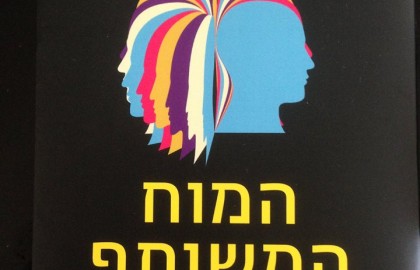While researching about the power of the Internet and how our network practices have changed our lives within the last decade, I came across an idea called ‘Mindsharing” in a book I found at the National Library. Mindsharing was the term coined by Israeli-based “crowd wisdom researcher” and public speaker, Lior Zoref. Mindsharing, he notes, comes from similar ideas as crowdsourcing.
 The Art of Crowdsourcing Everything:
The Art of Crowdsourcing Everything:
MINDSHARING by Lior Zoref
Crowdsourcing, a modern business term coined in 2005, is defined by Merriam-Webster as the process of obtaining needed services, ideas, or content by soliciting contributions from a large group of people, and especially from a large pool of people in the online community. Crowdsourcing is distributed problem-solving. By distributing tasks to a large group of people, you are able to mine collective intelligence, assess quality and process work in parallel.
Mindsharing, on the other hand, means to utilise the power of social media and crowd wisdom to improve our work and personal lives. Former Microsoft marketing and online services guru, Zoref, takes an informative look at the way crowds can help us make better, smarter decisions. By this logic, you’ll get better results if you ask lots of people for advice, because groups can actually provide more accurate answers than experts.
With access to Facebook, Twitter, LinkedIn etc, we are able to turn to mindsharing to find information about topics like relationships, finance, careers and many more. It invites people to think with us instead of for us and goes beyond our circle for advice and support.
In his 2012 Ted Talk at Long Beach Convention Centre, Zoref brought a live ox out on stage and invited the audience through crowdsourcing to guess its weight. The average of the crowd’s guesses pegged the animal at 1,792 pounds —only three pounds less than its actual weight, supporting Zoref’s idea that crowds can be smarter than individuals.
Zoref refers to studies such as Mark Granovetter’s 1973 paper on the strength of less intimate relationships, or “weak ties.” We’ve long recognized that a diverse group of acquaintances might be able to create a better solution to a problem than our more biased friends and families. However, never before have we had such ready access to a huge number of acquaintances as we do now in the era of social media and mobile connectivity.
“If we learn to rely on and trust the wisdom of the crowd, our decisions will be better, quicker, and easier. It is important to note that when we Mindshare, we aren’t asking others to think for us, but rather, to think with us. Through actively Mindsharing, you can access the global brain, which is far more powerful than any individual brain, and hack your way into a better career, stronger relationships, and the fulfillment of virtually any dream or goal you can imagine.”
—Lior Zoref
This idea of mindsharing can be brought back to the practices of OSS. We are able to hang out on the class site where our posts are being brought together and on our classmate’s personal websites to discuss their works and progress and offer our input. On the OSS platform, we can easily post an open-ended question on our research posts for our peers and even professors to respond to; just like in social media. Social media is truly an example of how learning and research has changed through collaboration, connecting and communication tools.
Great minds think alike.
Creative minds think together.
OSS is hence a very powerful and open-environment medium for professional and academic growth for digital natives; for we are presented with a much larger platform and resources to be more immersed in research. There, digital natives like us are able to apply what we have learnt navigating social media to our academic work. By leveraging technology through OSS in our academic journey, we are now able to engage in many-to-many collective form of participation, develop and engage in new modes of social interaction, social media, and mobile connectivity.
Additional sources & links:
Best Passive Income Model Podcast with Lior Zoref
7 Tips to becoming a Crowdsourcing Ace

